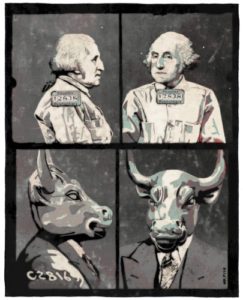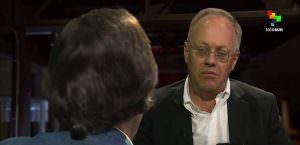Wal-Mart Goes Organic
Organic food is about to go mainstream. Michael Pollan explores what the globalization of organic food means, and finds it hard to separate the good from the bad. Also, see our interview with Pollan.Organic food is about to go mainstream. Michael Pollan explores what the globalization of organic food means, and finds it hard to separate the good from the bad. Also, see our interview with Pollan.
Your support matters…NYT:
Mass Natural By MICHAEL POLLAN Published: June 4, 2006
“Elitist” is just about the nastiest name you can call someone, or something, in America these days, a finely-honed term of derision in the culture wars, and “elitist” has stuck to organic food in this country like balsamic vinegar to mche. Thirty years ago the rap on organic was a little different: back then the stuff was derided as hippie food, crunchy granola and bricklike brown bread for the unshaved set (male and female division). So for organic to be tagged as elitist may count as progress. But you knew it was over for John Kerry in the farm belt when his wife, Teresa, helpfully suggested to Missouri farmers that they go organic. Eating organic has been fixed in the collective imagination as an upper-middle-class luxury, a blue-state affectation as easy to mock as Volvos or lattes. On the cultural spectrum, organic stands at the far opposite extreme from Nascar or Wal-Mart.
Independent journalism is under threat and overshadowed by heavily funded mainstream media.
You can help level the playing field. Become a member.
Your tax-deductible contribution keeps us digging beneath the headlines to give you thought-provoking, investigative reporting and analysis that unearths what's really happening- without compromise.
Give today to support our courageous, independent journalists.






You need to be a supporter to comment.
There are currently no responses to this article.
Be the first to respond.